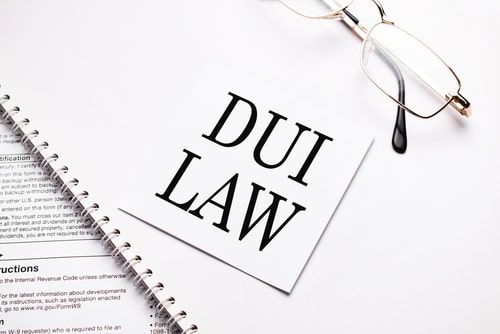When Does a Repeat DUI Turn into a Felony?
 In Illinois, driving under the influence (DUI) can have serious, life-altering repercussions. While a first-time DUI is typically charged as a misdemeanor, repeat offenses can escalate to felony charges. Understanding when and how this escalation occurs is crucial for anyone facing multiple DUI allegations. An Illinois lawyer can help you determine how to move forward with your case.
In Illinois, driving under the influence (DUI) can have serious, life-altering repercussions. While a first-time DUI is typically charged as a misdemeanor, repeat offenses can escalate to felony charges. Understanding when and how this escalation occurs is crucial for anyone facing multiple DUI allegations. An Illinois lawyer can help you determine how to move forward with your case.
Misdemeanor vs. Felony DUI
In Illinois, the distinction between misdemeanor and felony DUI charges depends on several factors, including the number of prior convictions and specific circumstances surrounding the offense.
First and Second DUI Offenses
Generally, first and second DUI offenses in Illinois are classified as Class A misdemeanors. However, it is important to note that even these “lesser” charges carry significant penalties, including:
- Fines up to $2,500
- Up to one year in jail
- License suspension for a minimum of one year
- Mandatory alcohol education and treatment programs
- The Transition to Felony DUI
Third DUI Offense
A third DUI offense in Illinois marks the transition into felony territory. This charge is classified as a Class 2 felony and carries more severe consequences:
- Fines up to $25,000
- three to six years in prison
- License revocation for a minimum of 10 years
- Mandatory residential alcohol treatment program
- Fourth and Subsequent DUI Offenses
Each DUI offense beyond the third is charged as a progressively more serious felony:
- Fourth DUI: Class 2 felony with extended prison terms
- Fifth DUI: Class 1 felony
- Sixth or subsequent DUI: Class X felony
These higher-level felonies come with increasingly harsh penalties, including longer prison sentences, higher fines, and extended or permanent license revocation.
Aggravating Factors
Certain circumstances can elevate a DUI charge to a felony, even if it is not a third or subsequent offense:
- DUI resulting in great bodily harm or permanent disability
- DUI committed while transporting a child under 16 years old
- DUI committed without a valid license or insurance
- DUI committed in a school zone when school is in session
In these cases, even a first or second offense can be charged as a felony, bypassing the typical progression from misdemeanor to felony.
Look-Back Period
Illinois does not have a specific “look-back” period for DUI offenses. This means that all prior DUI convictions, regardless of how long ago they occurred, can be considered when determining whether a new offense should be charged as a felony.
Collateral Consequences of Felony DUI
Beyond the immediate legal penalties, a felony DUI conviction can have far-reaching impacts on various aspects of life:
- Employment difficulties due to background checks
- Loss of professional licenses
- Restrictions on housing options
- Limitations on firearm ownership rights
- Potential immigration consequences for non-citizens
The compounding nature of these consequences underscores the importance of addressing DUI charges proactively and effectively.
Defending Against Felony DUI Charges
Given the severe consequences of felony DUI convictions, creating a strong defense is crucial. Potential defense strategies may include:
- Challenging the legality of the traffic stop
- Contesting the accuracy of field sobriety or chemical tests
- Examining procedural errors in the arrest or charging process
- Negotiating for reduced charges or alternative sentencing options
Each case is unique, and the most effective defense strategy depends on the specific circumstances surrounding the arrest and the individual’s prior record. A DUI attorney can evaluate the details of your case and develop a tailored defense approach to protect your rights and pursue the best possible outcome.
Contact a Will County, IL DUI Lawyer
The complex legalities of repeat DUI offenses require guidance. A Joliet, IL DUI attorney can provide invaluable assistance in understanding your rights, exploring defense options, and working towards the best possible outcome for your case. Call McNamara Phelan McSteen, LLC at 815-727-0100 for a free consultation.
 815-727-0100
815-727-0100













